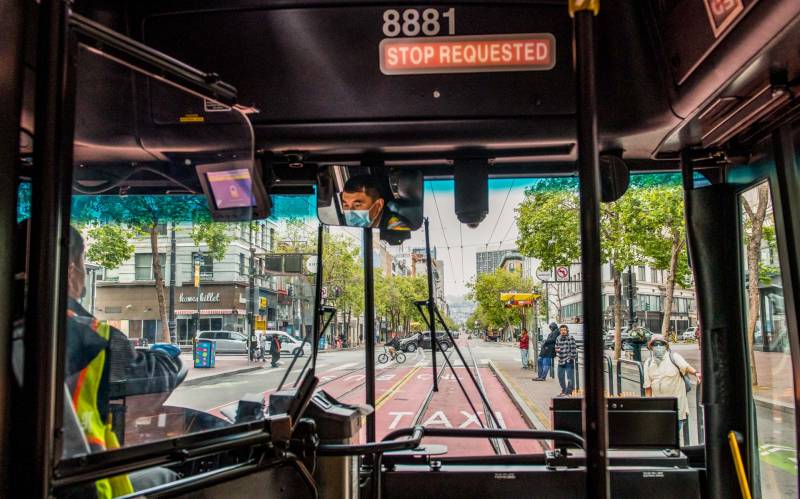San Francisco’s Muni today bears little resemblance to the transit service that was carrying more than 700,000 daily bus and rail passengers just a month ago.
The agency is currently carrying about 100,000 passengers a day on its drastically pared-back bus network. The region’s shelter-at-home orders, prompted by the coronavirus pandemic, have kept Muni operators, commuters and tourists off mass transit.
Now the city’s top transportation official is trying to talk more people out of using the system, at least for the time being, to help protect essential workers.
“Riding Muni as a non-essential traveler means you’re denying the opportunity for nurses and custodians and security guards and dishwashers to be able to ride Muni safely,” said Jeffrey Tumlin, director of the San Francisco Municipal Transportation Agency, which runs Muni,
The coronavirus crisis has had a significant effect on Muni’s workforce.
